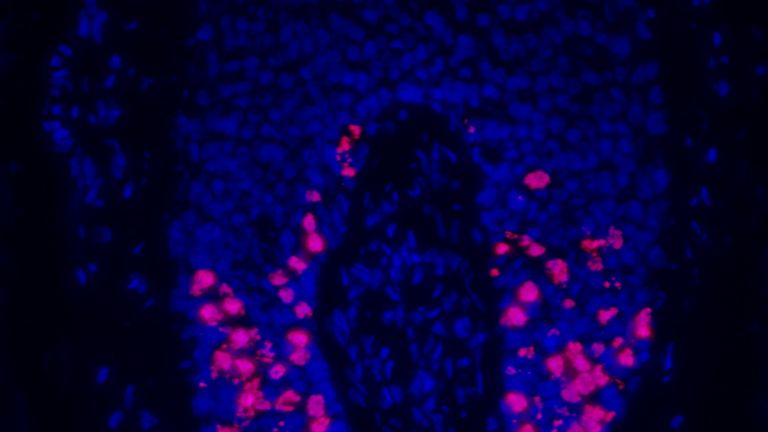Scientists have developed a new strategy that could protect chemotherapy patients from suffering hair loss.
Researchers at the University of Manchester uncovered the breakthrough via the CDK4 / 6 inhibitor drug, which is an existing form of cancer therapy that blocks the division of affected cells to stop the disease from spreading.
They found that when organ-cultured human scalp hair follicles were bathed in the inhibitors, they were much less susceptible to the damaging effects of the chemotherapy drugs that cause hair loss.

Organ-cultured means the follicles used were developed to model the characteristics of those that would be found on a human head, with testing of the technique having not yet gone beyond the laboratory stage.
But the scientists remain excited by the potential benefits of their discovery, as hair loss is among the most upsetting side-effects for people who go through chemotherapy.
The drugs that cause hair to fall out are called taxanes, which are used to treat breast and lung cancer.
Dr Talveen Purba, lead author on the study, said it is a delicate balancing act to ensure follicles can be protected from taxanes in a way that does not undermine their impact on cancerous cells.
“We found that the specialized dividing cells at the base of the hair follicle that are critical for producing hair itself, and the stem cells from which they arise, are most vulnerable to taxanes,” he said.
“Therefore, we must protect these cells most from undesired chemotherapy effects – but so that the cancer does not profit from it.”

Dr Purba and his team at the Center for Dermatology Research at the university hope their work will lead to the development of medicines that work the same way on scalp hair follicles as the CDK4 / 6 inhibitor drug.
Patients have waited a long time to see such a breakthrough, but the discovery in Manchester could lead to more.
Among the questions that still need to be answered are why some patients on the same drugs show greater hair loss than others, even when they are receiving exactly the same dose.
Dr Purba said: “Despite the fact that taxanes have been used in the clinic for decades, and have long been known to cause hair loss, we’re only now scratching the surface of how they damage the human hair follicle.
“We need time to further develop approaches like this to not only prevent hair loss, but promote hair follicle regeneration in patients who have already lost their hair due to chemotherapy. “







GIPHY App Key not set. Please check settings